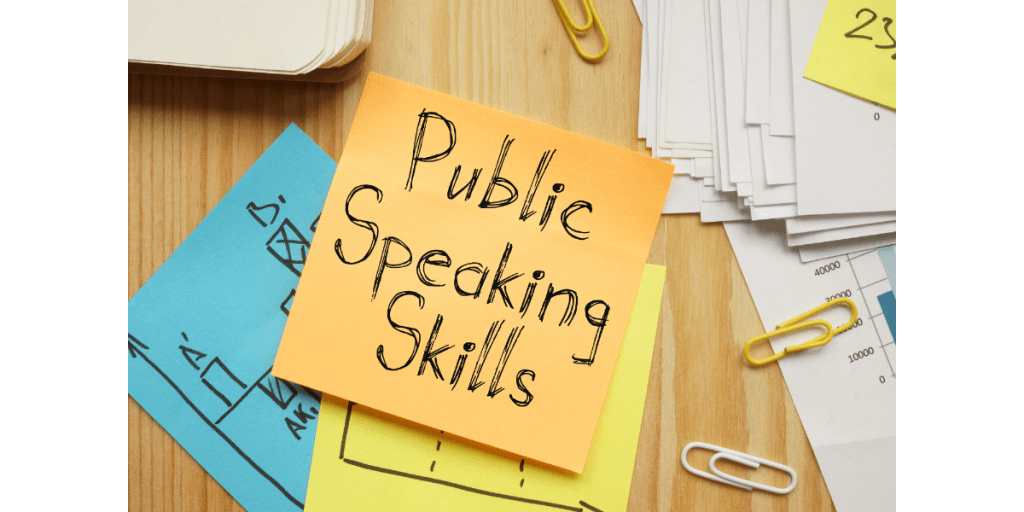Public speaking is an essential skill for anyone who wants to communicate effectively and make a positive impact on others. This holds not only for professionals in business, education, and politics but also for anyone who wants to share their ideas or experiences with a wider audience. As a public speaker, you have the power to inspire, motivate, and influence others, which is why it is crucial to invest time and effort in honing your public speaking skills.

The ability to speak confidently in front of an audience has many benefits. First and foremost, public speaking can boost your self-confidence and self-esteem, as it demonstrates your mastery over a subject and your ability to articulate your thoughts clearly. Moreover, strong public speaking skills can enhance your career prospects, as employers often seek candidates who can communicate effectively and persuasively. Finally, public speaking can also help you develop essential leadership skills, such as active listening, decision-making, and empathy, which are vital for success in any field.
In today’s fast-paced world, public speaking is more important than ever. With the advent of digital communication and social media, the need for face-to-face communication has become even more crucial. Public speaking helps to bridge the gap between the digital and physical realms, enabling us to connect with others on a deeper and more personal level. By honing your public speaking skills, you not only improve your communication abilities but also contribute to the betterment of society as a whole.
- How to Overcome the Fear of Public Speaking
- Tips for Preparing a Great Speech
- How to Engage Your Audience During a Speech
- The Art of Storytelling in Public Speaking
- Body Language and Nonverbal Communication Tips for Public Speaking
- Common Mistakes to Avoid When Giving a Speech
- How to Handle Questions and Objections During a Speech
- Resources for Improving Your Public Speaking Skills
- Online Resources:
How to Overcome the Fear of Public Speaking
The fear of public speaking, also known as Glossophobia, is one of the most common fears that people experience. This fear can be crippling, causing anxiety, stress, and even physical symptoms such as shaking, sweating, and nausea. However, the good news is that this fear can be overcome with practice, determination, and the right mindset.
First, it is essential to recognize that the fear of public speaking is natural and that even experienced public speakers feel nervous before taking the stage. By accepting that nerves are a normal part of the process, you can begin to reframe your thinking and view your anxiety as a positive force that can help sharpen your focus and energize your performance.
Next, practice is key to overcoming your fear of public speaking. The more you practice, the more comfortable and confident you will become in your abilities. Start by practising in front of a mirror or recording yourself on the video to get used to seeing and hearing yourself speak. Then, gradually move on to speaking in front of small groups of friends or family members, and eventually larger audiences.
Finally, it is essential to develop a positive mindset and believe in your ability to succeed as a public speaker. Visualize yourself giving an engaging and successful speech, and remind yourself of your strengths and accomplishments. By cultivating a positive attitude, you will be better equipped to handle any nerves or anxiety that may arise during your presentation.
Tips for Preparing a Great Speech
Proper preparation is crucial for delivering a successful speech. By investing time and effort in organizing your thoughts and crafting a compelling message, you will be setting yourself up for success as a public speaker. Here are some tips to help you prepare a great speech:
- Know your audience: Before you begin writing your speech, it is vital to understand your audience’s needs and interests. This will enable you to tailor your message to resonate with them and ensure that your speech is relevant and engaging.
- Define your purpose: It is essential to have a clear and concise purpose for your speech. This will provide you with a focus and direction, ensuring that your message is coherent and cohesive.
- Develop a strong opening: Your opening should grab your audience’s attention and set the tone for the rest of your speech. Consider starting with a captivating story, a thought-provoking question, or a powerful statement that will immediately engage your listeners.
- Organize your content: A well-structured speech is easier to follow and understand. Use headings and subheadings to break your content into logical sections, and ensure that your ideas flow smoothly from one point to another.
- Use strong supporting evidence: Your arguments will be more persuasive if you back them up with credible evidence, such as statistics, examples, or expert opinions. Be sure to research your topic thoroughly and only use reputable sources.
- Practice, practice, practice: Rehearsing your speech multiple times will help you become more comfortable with the content and delivery. This will, in turn, boost your confidence and enable you to perform your best on stage.
How to Engage Your Audience During a Speech
An engaged audience is more likely to absorb and remember your message. Therefore, it is crucial to keep your audience’s attention throughout your speech. Here are some tips for engaging your audience during a speech:
- Make eye contact: Eye contact is essential for establishing a connection with your audience. By looking directly at your listeners, you signal that you are genuinely interested in their thoughts and opinions, and you encourage them to engage with your message.
- Vary your tone and pace: A monotonous voice can quickly bore your audience, so be sure to vary your tone, volume, and pace to maintain interest. Emphasize important points by speaking louder or slower, and use pauses to allow your audience time to absorb your message.
- Use gestures and body language: Nonverbal communication can greatly enhance your speech by adding energy and emotion. Use gestures, facial expressions, and body language to convey your message and connect with your audience on an emotional level.
- Be relatable and authentic: Audiences appreciate speakers who are genuine and relatable. Share personal stories or anecdotes, and use humor when appropriate. By showing your vulnerability and authenticity, you will create a stronger bond with your audience.
- Encourage audience participation: Involve your audience in your presentation by asking open-ended questions or requesting their opinions. This not only keeps your audience engaged but also provides valuable feedback and insights.
The Art of Storytelling in Public Speaking
Storytelling is a powerful tool for public speakers, as it allows you to captivate your audience and make your message more memorable. By incorporating stories into your speech, you can create an emotional connection with your listeners, making them more receptive to your ideas. Here are some tips for using storytelling effectively in public speaking:
- Choose relevant stories: Your stories should be directly related to your message and serve to illustrate your points. Ensure that your stories are relevant to your audience and their interests, as this will make them more engaging and relatable.
- Keep it simple: A good story is easy to follow and understand. Avoid using overly complex language or jargon, and focus on delivering a clear, concise narrative that your audience can easily follow.
- Use vivid details: To bring your story to life, use descriptive language and vivid imagery. This will help your audience visualize the events and characters in your story and create a more immersive experience.
- Build suspense and tension: A compelling story keeps the audience on the edge of their seats, eager to find out what happens next. Build suspense and tension in your stories by using foreshadowing, cliffhangers, and unexpected twists.
- Deliver a powerful message: Your story should serve a purpose and deliver a clear, impactful message. Ensure that your story’s conclusion ties back to your overall theme and reinforces your key points.
Body Language and Nonverbal Communication Tips for Public Speaking

Nonverbal communication, such as body language, facial expressions, and gestures, can significantly impact your public speaking performance. By using nonverbal cues effectively, you can enhance your message and create a more engaging and memorable experience for your audience. Here are some tips for using body language and nonverbal communication in public speaking:
- Maintain good posture: Stand tall with your shoulders back and your head held high. This projects confidence and authority, making you appear more credible and trustworthy to your audience.
- Use natural gestures: Gestures can help emphasize your points and convey your emotions, but they should be natural and unforced. Avoid repetitive or distracting gestures, and use your hands and body to complement your words, not overshadow them.
- Make eye contact: As mentioned earlier, eye contact is crucial for establishing a connection with your audience. Aim to make eye contact with different members of your audience throughout your speech, as this will help you appear more approachable and personable.
- Control your facial expressions: Your facial expressions can reveal your emotions and attitudes, so be aware of the signals you are sending. Maintain a pleasant, relaxed expression, and avoid frowning, grimacing, or rolling your eyes.
- Be mindful of your tone of voice: Your tone of voice can convey your emotions and attitudes just as much as your facial expressions. Aim for a clear, confident, and expressive voice that projects warmth and sincerity
Common Mistakes to Avoid When Giving a Speech
Even the most experienced public speakers can make mistakes from time to time. Being aware of these common pitfalls can help you avoid them and ensure that your speech is as successful as possible. Here are some common mistakes to avoid when giving a speech:
- Overloading your speech with information: While it is essential to provide your audience with valuable insights, overloading your speech with too much information can be overwhelming and confusing. Focus on delivering a clear, concise message, and avoid the temptation to cram in every detail.
- Neglecting your audience’s needs: Remember that your speech is ultimately about your audience, not about you. Ensure that your content is relevant and engaging, and be responsive to your audience’s reactions and feedback.
- Reading from a script: While it is essential to be well-prepared, reading directly from a script can make your speech appear dull and uninspired. Aim to speak naturally and conversationally, using your notes as a guide rather than a crutch.
- Ignoring the importance of practice: As mentioned earlier, practice is crucial for building confidence and improving your public speaking skills. Don’t underestimate the importance of rehearsing your speech multiple times before taking the stage.
- Failing to manage your nerves: Nerves are a natural part of public speaking, but it is essential to learn how to manage them effectively. Develop strategies for coping with nerves, such as deep breathing, visualization, or positive affirmations, and remember that a little bit of anxiety can actually enhance your performance.
How to Handle Questions and Objections During a Speech
Handling questions and objections during a speech can be challenging, but it is an essential skill for any public speaker. By addressing your audience’s concerns and providing thoughtful, well-reasoned responses, you can strengthen your credibility and demonstrate your expertise on the subject. Here are some tips for handling questions and objections during a speech:
- Be prepared: Anticipate the questions and objections that your audience may have, and be prepared with well-researched, well-reasoned responses. This will not only boost your confidence but also help you appear more knowledgeable and credible in the eyes of your audience.
- Listen carefully: When a question or objection is raised, listen carefully to the speaker’s concerns and ensure that you fully understand their point of view. This will enable you to provide a more accurate and relevant response.
- Remain calm and composed: It is essential to remain calm and composed when addressing questions and objections, even if the speaker is confrontational or aggressive. Maintain a professional demeanor and respond with respect and courtesy.
- Be honest: If you don’t know the answer to a question or objection, admit it. Your audience will appreciate your honesty and integrity, and you can always offer to research the issue further and provide a response at a later date.
- Keep the conversation focused: When addressing questions and objections, it is essential to stay on topic and avoid going off on tangents. Ensure that your responses are focused and directly address the speaker’s concerns.
Resources for Improving Your Public Speaking Skills
There are numerous resources available to help you improve your public speaking skills, including books, online courses, and workshops. Here are some popular options to consider:
- Books: There are countless books on public speaking, covering topics such as overcoming fear, crafting compelling speeches, and improving body language. Some of the most well-known titles include How to Win Friends and Influence People by Dale Carnegie, Speak Like a Pro by Ruth Sherman, and The Art of Public Speaking by Stephen Lucas.
- Online Courses: There are several online courses available that offer comprehensive lessons on public speaking. These courses range from beginner-level topics such as building confidence and using humour effectively to more advanced topics such as storytelling and giving persuasive speeches.
- Workshops: Attending a public speaking workshop is an excellent way to learn from experienced professionals and gain valuable hands-on experience. Many workshops also feature opportunities for participants to practice their skills in front of an audience, which can help boost confidence and improve performance.
Online Resources:
There are several online resources available to help you with your public speaking skills, and many of them are free. YouTube is an excellent source for video tutorials on everything from body language to speech delivery.
TED Talks are also a great way to view inspiring and informative speeches from some of the world’s best speakers. Additionally, there are numerous websites devoted to public speaking, such as Toastmasters International, which offer valuable advice and resources for improving your presentation skills. Finally, podcasts can be a great source of inspiration and guidance on communication topics.









